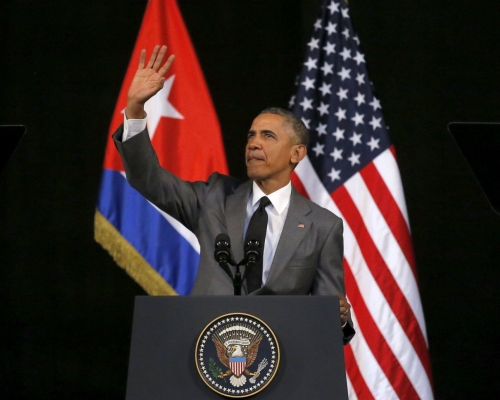
 Cubanet, Miriam Celaya, Havana, 20 March 2017 — Putting aside the passions of supporters and detractors of the policies drawn up by President Barack Obama for Cuba, there is no doubt that, for better or worse, it set indelible before and after benchmarks in the lives of the Cuban people.
Cubanet, Miriam Celaya, Havana, 20 March 2017 — Putting aside the passions of supporters and detractors of the policies drawn up by President Barack Obama for Cuba, there is no doubt that, for better or worse, it set indelible before and after benchmarks in the lives of the Cuban people.
The first benchmark was the reestablishment of relations after half a century of confrontation, which – although it did not even come close to the high expectations of Cubans – did manage to expose the Cuban dictatorship to the scrutiny of international public opinion, thus demonstrating that the regime is the true obstacle to the wellbeing and happiness of Cubans.
Consequently, although Cubans are no freer, after two years of rapprochement with the former “imperialist enemy,” the Castro regime has run out of arguments to justify the absence of economic, political and social rights, and thus has lost credibility in the International forums and in political circles, where it is being openly questioned.
Just a few days before leaving the White House, Obama took another decisive step by repealing the “wet foot/dry foot” policy, giving up immigration privileges for Cubans in the US, and thereby crushing the hopes of an large number of Cubans who aspired to enjoy the rights and prosperity in that destination, that they can only dream about now, and are unable to demand in their own country.
Thus, in two years, these two Cuban exceptions which seemed eternal, suddenly disappeared: an old dictatorship, long tolerated by the international community when it was considered the “small, heroic and defenseless victim resisting the onslaught of the strongest of world powers,” and the people – equally victimized, persecuted, helpless and subjugated by the dictatorship enthroned in power – who were forced to emigrate, deserving the consubstantial privilege, above that of any other immigrants, to live quietly in the territory of the United States, no longer setting foot in Cuba.
Thus, in the future, the Castro regime can be considered as what it really is: a prosaic dictatorship without heroic attire, while those Cubans who flee it without making the slightest effort to face it, will not be described as “politically persecuted,” but as any other run of the mill immigrants, such as those throughout the world who aspire to enjoy the wellbeing and opportunities that residing in the most developed country on the planet offers. No more, no less.
That is to say, though Barack Obama did not improve or worsen the Cuban crisis, we, nevertheless, must thank him for putting things in their right perspective, whether we like it or not. But it may be that some, or perhaps too many, find it much more comfortable to steer the direct burden of the current state of affairs in Cuba – including increases in repression – while others (more astute) here and there toss their hair and tear their patriotic garments against the “betrayal” of the former leader, generally with the untenable intention of making a political career or of continuing to thrive in the Cuban calamity.
These are the “hard hand” theorists who will attempt to use it as a trump card to overthrow the Castro dictatorship, this time with the hypothetical support of the new US President, as if that strategy had not proved ineffective during the previous 50 years.
The sad paradox is that, judging from the present reality, the Castro way of government – like other known dictatorships – will not “fall,” defeated by the indignant people, fed up with poverty and oppression. Neither will it be crushed by the tenacious struggle of the opposition or the pressures of some foreign government. Most likely, instead of falling, the Castro regime will gently slide down of its own accord into another advantageous form of existence in a different socioeconomic setting.
For, while not a few Cuban groups from both shores wear themselves out and gloat over mutual reproaches and useless lamentations, the olive green mafia continues behind the scenes, distributing the pie, quietly accommodating itself in the best positions and palming its cards under our clueless noses, to continue to enjoy the benefits and the privileges of power when the last remnants of the shabby backdrop of “socialism, Castro style,” which is all that barely remains of the glorious revolutionary project, will finally fall.
To the surprise of the army of disinherited survivors of the communist experiment, the progeny of the historical generation and their accompanying generals could emerge, transmuted into tycoons and entrepreneurs, thus consummating the cycle of the swindle that begun in 1959. This is, so far, the most likely scenario.
Perhaps by then 60 years of totalitarianism would have elapsed, and eleven presidents will have passed through the White House, but until today, only one of them, Barack Obama, will have influenced, in such a defining way, in the political future of Cuba.
Translated by Norma Whiting
